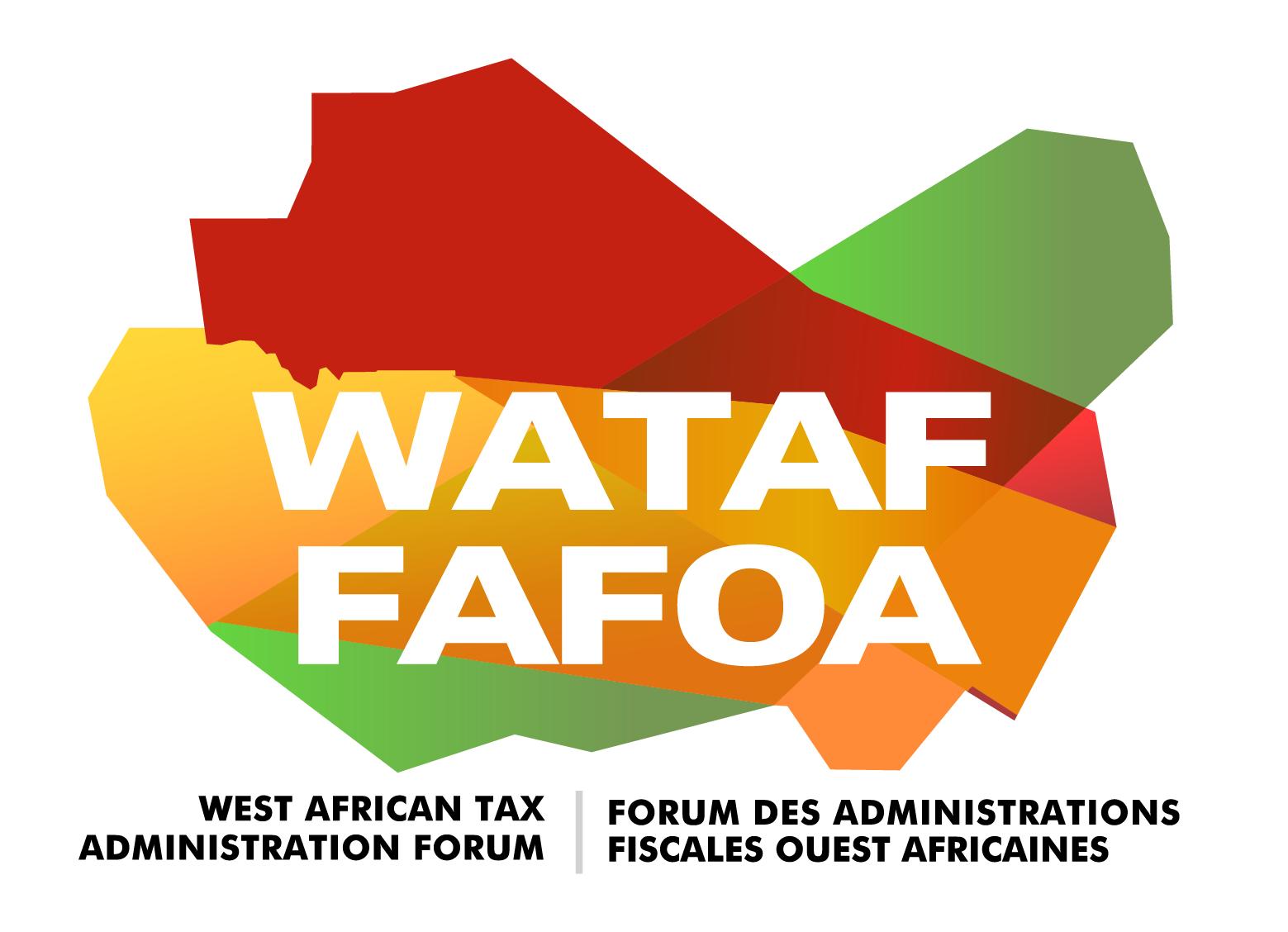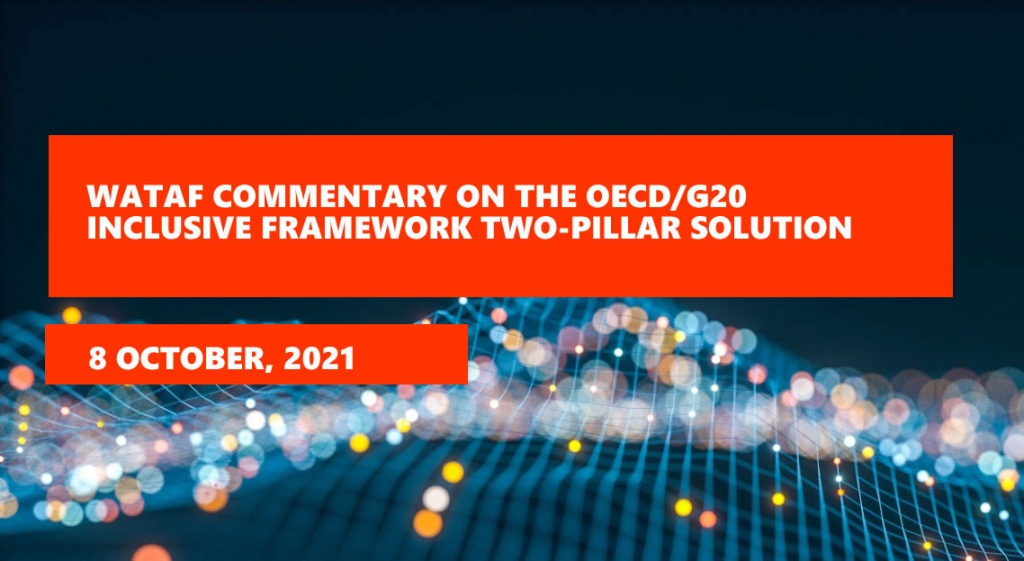The OECD/G20 Inclusive Framework (IF) on BEPS on October 8 2021 released the political agreement of its members to its two-pillar solution to the tax challenges of the digitalisation of the economy. The landmark deal has been endorsed by 136 jurisdictions out of the 140 members of the IF, and provides a new set of rules for the taxation of profits of Multinational Enterprises (MNEs). The deal is expected to come into effect in 2023 and provides, under the Pillar 1 and Pillar 2, a solution to the tax challenges of the digitalisation of the economy and global anti-base erosion rules.
Pillar 1 solution provides new nexus and profit allocation rules under the new Amount A taxing right, while Pillar 2 provides jurisdictions with a right to impose a “top-up” tax where other jurisdictions have not exercised their primary taxing rights or a payment is otherwise subject to low levels of effective taxation.
WATAF has always been concerned with the tax challenges posed by the digitalisation of the economy, as well as, the damaging effects that uncoordinated unilateral measures will have on international businesses and tax system at large. This explains why our body has been supportive of the ongoing work of the IF in finding a global solution that will deliver a fair outcome to all jurisdictions. We have equally encouraged our members to actively participate in the global discussions leading up to the agreed solution, noting the resounding impact such changes in the international tax rules will have on the revenue accruing to jurisdictions.
While we commend the effort of the G20, OECD Secretariat and the Inclusive Framework in securing this important deal, we are concerned however at the direction taken on some of the building blocks of the final IF statement, which was essentially developed by only a few members of the IF, which constitute the Steering Group of the Inclusive Framework (SGIF), while all other IF members were only invited to endorse the solution as presented by the Chair. We are more concerned that only one of our members participated in developing the rules, with that member objecting to the rules and abstaining from endorsing the final outcome. This has left us uncomfortable about the fairness of the rules
With the far reaching effect of the deal on the allocation of global profits of MNEs to jurisdictions, WATAF is concerned that an unfair deal will further widen the inequalities between the developed and developing countries and increase the dependencies of developing countries on foreign aids and assistance. It is our belief that a fair deal should reallocate a substantial part of MNEs profits to the market jurisdictions.
Some of our concerns and those expressed by some of our members under the Pillar 1 rules, are:
- Limited scope of MNEs covered by the rules, as the scope thresholds of €20billion global revenue and above 10% profitability (calculated using averaging mechanism) have put less than 100 companies within the scope of the rules.
- The scope threshold has left out key MNEs exploiting the markets of our members from the scope of Pillar 1, while most of the in-scope MNEs have no significant engagement with our markets.
- The building block on nexus, which sets an in-country revenue threshold that will qualify a jurisdiction for a share in Amount A profit at EUR 1 million (and EUR 250 000 for smaller jurisdictions with GDP lower than 40 billion) is too high for our members, as it has further reduced the number of MNEs from which they may get Amount tax revenue. With the existing nexus rule, none of our members is getting Amount A share of profits from up to 10 MNEs in the near future, while some have even complained that they may not get Amount A share of profit from any MNE.
- Even, where our members may partake in a share of the Amount A profits of an MNE, there is only a little portion of the profits of that MNE available for sharing between the market jurisdictions. This is because the building block on Quantum provides that only 25% of residual profits in excess of 10% profitability will be shared by all the market jurisdictions.
- We do not understand the policy rationale for the removal and standstill of unilateral measures on all companies, including those not in-scope of the rules, in exchange for a taxing right on less than 10 MNEs.
- The wide scope of the unilateral measures for removal and standstill, which extends beyond the Digital Services Taxes, to the undefined “other relevant similar measures” may infringe on the existing taxing rights on non-residents in domestic laws of our members.
- Ineffectualness and lack of certainty regarding the elective option for developing countries on the mandatory binding dispute resolution mechanism, due to the cosmetic conditions attached, coupled with the low capacity challenges of most of our members in such area and the cost associated with defending cases under arbitration.
- The scope of tax certainty and mandatory binding dispute resolution mechanism, which extends beyond Amount A and covers all transfer pricing and business profits disputes involving in-scope MNEs.
- The revenue that jurisdictions are expected to give up under the unilateral measures and the implementation of the mandatory binding dispute resolution mechanism may outweigh the revenue that they may be derived from the Amount A taxing right, thereby deriving a negative revenue outcome from the project.
The concerns expressed under Pillar 2 are: - The GloBE rule order that makes the undertaxed payment rule (UPTR) a backstop to the income inclusion rule (IRR), which means that our members may not benefit from the rules, except all jurisdictions of the ultimate parent and intermediate parent entities failed to implement IRR.
- Exclusion of MNEs from the UPTR in the initial phase of 5 years of their international activity and implementation of UTPR, when such exclusion was not extended to IIR.
- The narrow scope of the subject to tax rule (STTR), may not include capital gains and base eroding payments for services of technical, managerial and consultancy nature
As the Inclusive Framework and its working groups continue the development of the details of the rules, as well as the model legislations and Multilateral Conventions for implementing the rules, we call on them to take a second look at the agreed solution, with a view to providing comfort to our members and other developing countries on the fairness of the rules. It should always be noted that non-taxation of most MNEs in the market jurisdictions will continue to fuel Illicit Financial Flows (IFF) and Base Erosion and Profit Shifting (BEPS).
While we continue to lend support to the agreed solution and encourage our members continued active participation in developing the rules, we call on the IF and its working groups to consider some amendments that will ensure fairer reallocation of MNEs profits to the market jurisdictions.






 Views Today : 68
Views Today : 68 Total views : 37613
Total views : 37613